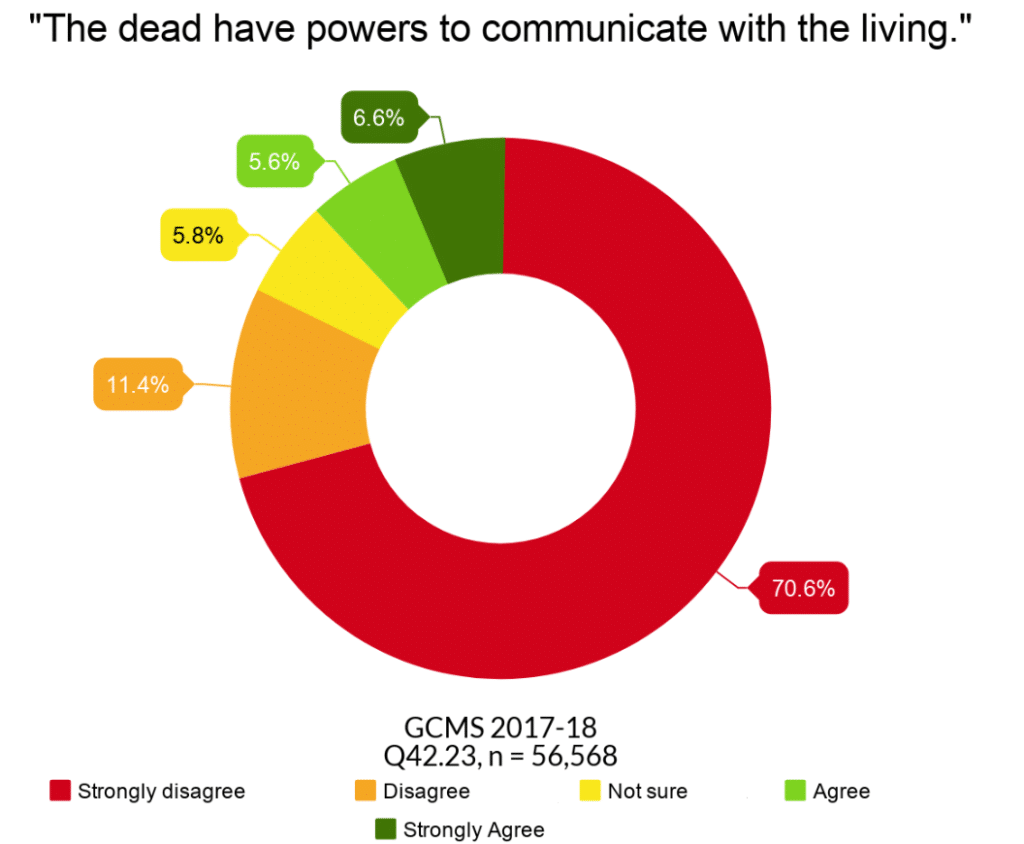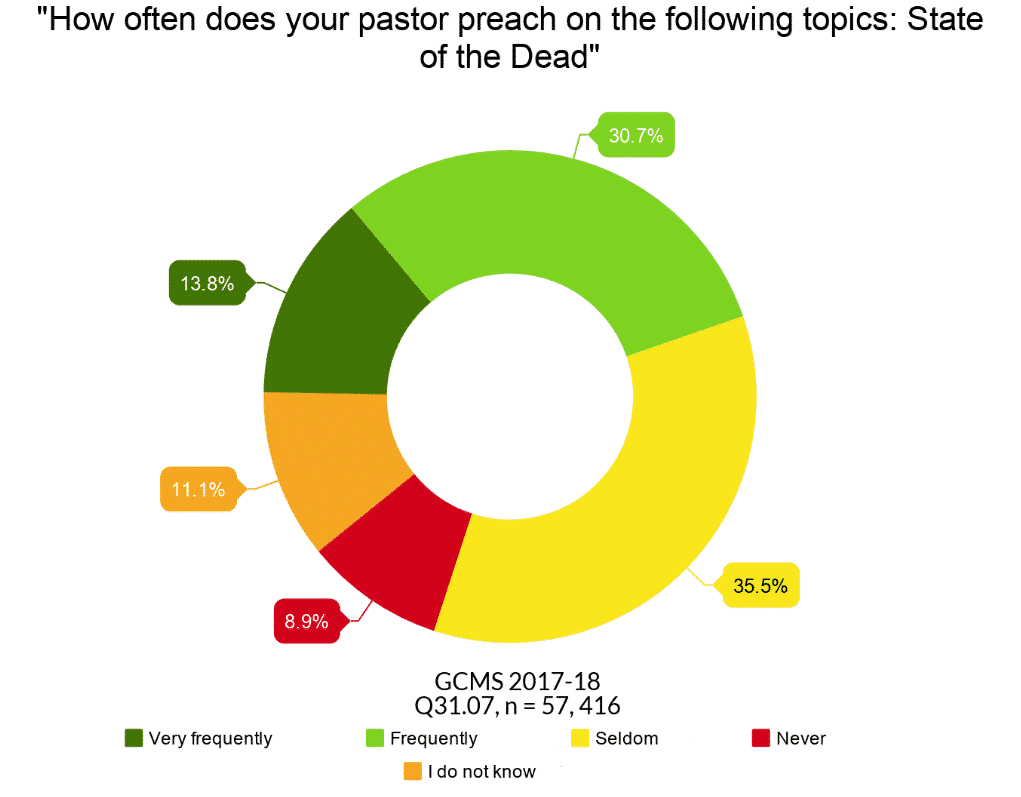Our last blog examined a recent (2018) study commissioned by the General Conference of SDA, which asked church members to respond to statements on the consciousness of the dead, as well the concept of a soul living on after death (click here to see our previous blog with some data on these issues). As you may recall, in the 2013 version of the survey there was a significant number of respondents who reported some degree of confusion on the subject. The 2017-18 Global Church Member Survey (GCMS) included additional questions on the state of the dead to understand where this confusion comes from. So, how did church members respond to the other questions?
One of the things church leaders and researchers wanted to know was what church members believe about the immortality of soul. In addition to the question on whether the soul lives on after death (see our previous blog), survey participants were asked to respond to the statement, “The dead have powers to communicate with and influence the living.” Seven in ten respondents (71%) strongly disagreed with this statement, and another 11 % disagreed. However, 6% of respondents shared that they are not sure what they think about this statement, and 12% of respondents agreed to one extent or another (Q42.23).

Compared with the data in previous blog, less people believe that the dead have power to communicate with and influence the living than that the soul lives on after death. While most Adventists adhere to a Biblical view of the state of the dead, there are some who remain unsure of it or hold beliefs that are not in accordance with the Bible or the 28 Fundamental Beliefs.
So, what is the source of this confusion? This is obviously a difficult question to answer. The Seventh-day Adventist Church is a global church and there are many factors related to church members’ diverse cultural backgrounds that could affect how people understand and interpret this specific doctrine. The official position of the Seventh-day Adventist Church on the state of the dead, however, should not change. One of the ways in which local Adventist leaders can clear up any doubts regarding important Adventist beliefs is through the pulpit. Sermons provide powerful opportunities to encourage people to think about and sort through their doubts on all kinds of issues.
With this in mind, in the 2017-18 survey church members were asked how often they hear sermons discussing the state of the dead subject. Overall, 45% of respondents shared that they hear sermons on this topic frequently or very frequently. However, 36% of participants said they seldom hear sermons on the state of the dead and an additional 9% never hear sermons on this topic at all (Q31.07).

Evidently, this important belief needs to be addressed more often in Adventist churches. It is easy to assume that everyone who attends an Adventist church (especially those who have been baptized or who play an active role in the church) have clear, Biblically-sound views on the Fundamental Beliefs. As the recent global survey demonstrates, however, there is room for more church leaders and pastors to actively discuss the matters that members might have doubts about and thus bring them closer to truth. The GCMS data also shows that Adventists in traditionally Christian territories are more in accord on this matter with the Fundamental Beliefs than church members from Polytheistic context. With all this in mind, more sermons on this belief should lbe planned and more attention to this subject should be given in baptism classes especially if candidates are still in secondary or high school. The disciple-making process should continue after baptism to help members be rooted in the Scripture, know how to deal with issues connected to death, and be prepared to meet the Lord when He comes.
Created in collaboration with the Institute of Church Ministry.

